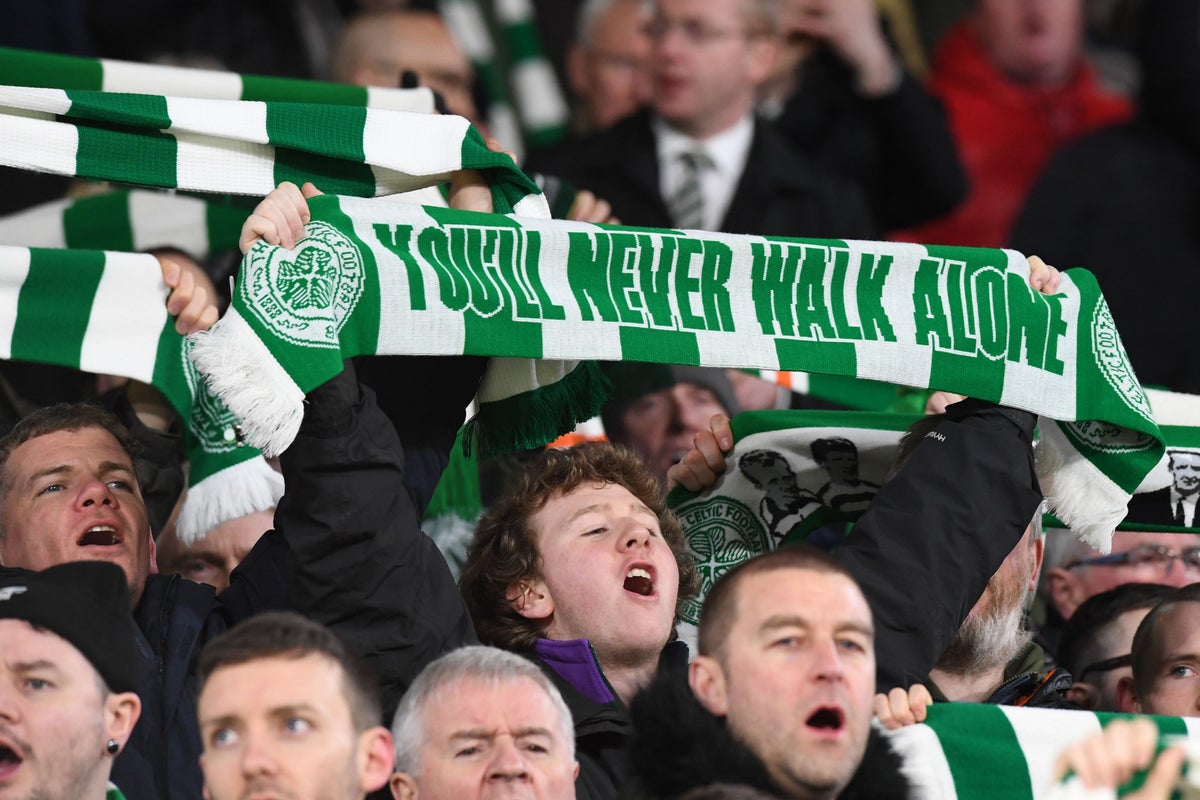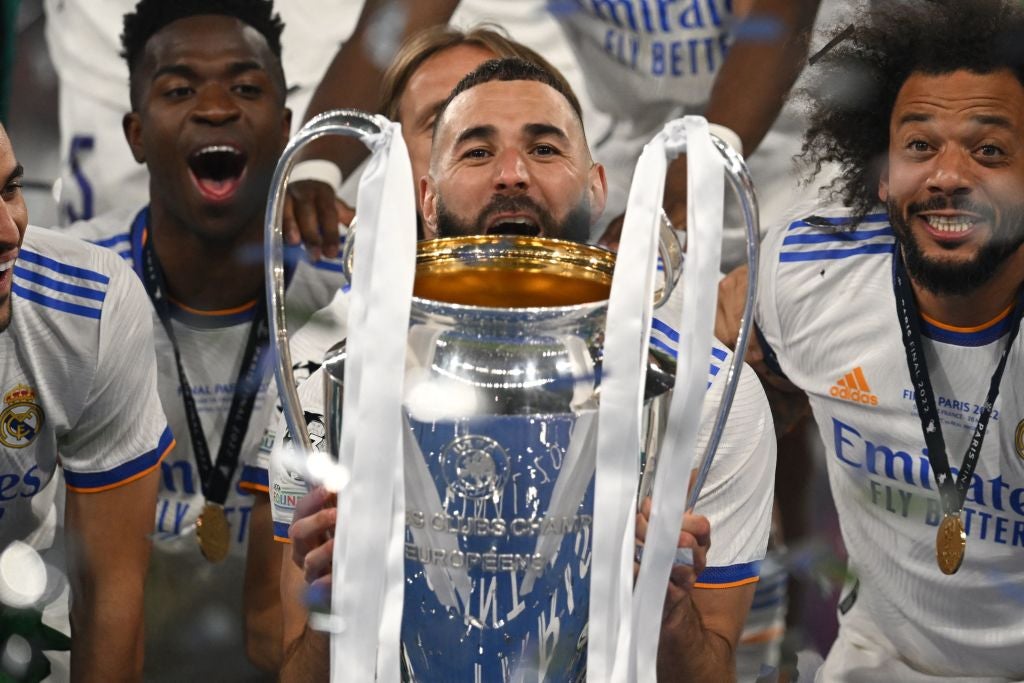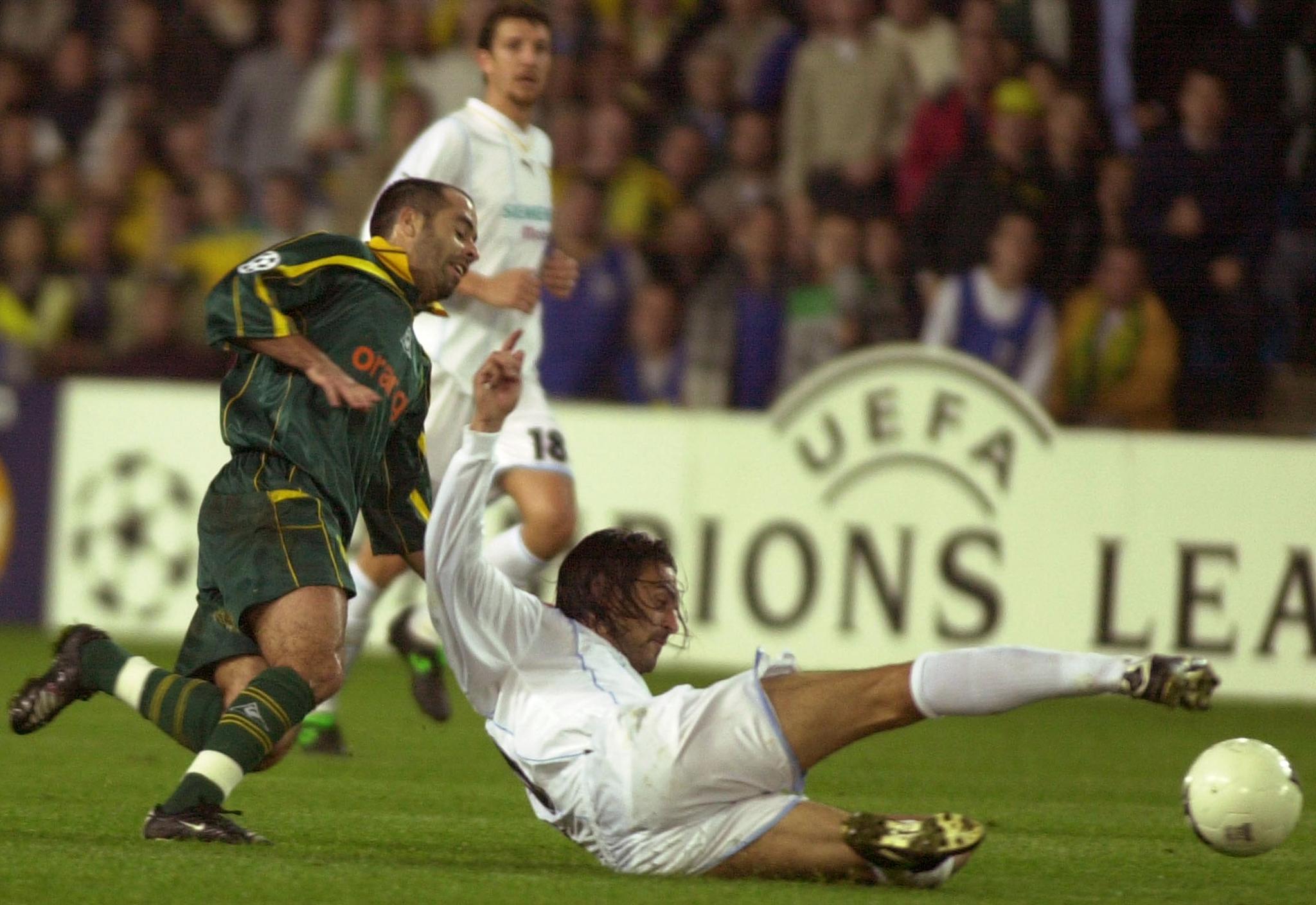
Over the last few days, Ange Postecoglou has been drilling his players in a typically expansive gameplan, but it has all come with a new electricity. Tuesday night won’t just be a case of Celtic playing their normal game and refusing to change for anybody. It will instead be a night when the unique atmosphere fits with the usual approach, amplifying it, and they will just go with the mood of adventure.
You only have to walk around Glasgow this week to get a sense of what the Champions League is supposed to be about. The city that staged one of the old European Cup’s first truly mythical finals, when Real Madrid beat Eintracht Frankfurt 7-3 at Hampden Park in 1960, now awaits the return of the 14-time champions with a rare excitement. Across the city, the Rangers players have been playing the Champions League theme on their phones as they head to Ajax, but that’s really all in anticipation of it booming around Ibrox for the visit of Napoli next Tuesday.
This is what the competition is supposed to feel like. One of the Champions League’s first cities, rather appropriately, is this group stage’s emotional centre.
There are nevertheless a few ironies to that, as the competition celebrates its own 30th anniversary and is so disrupted by the World Cup.
One of the reasons it means so much to the Old Firm is that, unlike many of the clubs they’re facing, this has become so rare. Real Madrid’s visit is Celtic’s first Champions League match in five years. Ajax is Rangers’ first in 12 years.
And yet this is partly because of an initiative in which the Ibrox club were hugely influential, just before the start of the competition back in 1992. That was Silvio Berlusconi’s first plan for a Super League, which had Rangers as one of the biggest voices.
The same forces have now left them, and even AC Milan, way behind the elite.
You could argue that it’s a lesson in how fluid football is, how much can change. Except that is something the Champions League itself has changed as many now reflect on its place in history.

A fair argument from many within Uefa is that the competition’s greatest legacy was preventing a ruinous split in the game as early as 1992.
A counter-argument is that the Champions League merely institutionalised a Super League, implementing an economic infrastructure that has ossified the game and made the group stage too predictable.
Consider these figures from a CIES report on “competitive balance”. During the period 1993-2018, Uefa distributed €17.3bn (£14.9bn) in prize money, of which the Champions League was responsible for most.
More than a third, at €6bn, went to the 12 founding member “Super League clubs”. A further €8.1bn of the remaining €11.3bn never got beyond another 38 clubs from the top leagues.
That barely left much for the rest of the game, and the effects are obvious. This is Barcelona’s “virtuous cycle” manifest. The big clubs buy all the best players, become better and more commercially attractive – right up to attracting nation states as owners – with this perpetuating so that the gaps get bigger with every turn of the wheel.
The Champions League, as much as Premier League broadcasting rights, has been the biggest factor in this.
It has led to a situation in which many domestic leagues are predictable, and this competition’s group stage is getting even more so. A pattern of the last few years has been the super-clubs racking up a greater number of points than ever before, with fewer last-16 positions going to the wire.

That makes quite a change to most of the Champions League’s own early history. It used to be the case that entire groups would be totally upended on the last day, as happened in 2001-02 with one four-way battle between Nantes, Galatasaray, PSV Eindhoven and Lazio. Even as recently as 2009-10, and a team as historically great as Pep Guardiola’s Barcelona, the Catalans were one of four teams fighting to stay in the competition on the final night, along with Jose Mourinho’s Internazionale, Rubin Kazan and Dynamo Kyiv.
It is something worth considering as the next weeks replay highlights from those 30 years. Some of the most remarkable have come from clubs outside the elite.
There was Rangers’ own titanic match with Olympique Marseille in 1992-93, and IFK Gothenburg’s evisceration of both Barcelona and Manchester United two years later. Rosenborg eliminated the great AC Milan at the San Siro in the 1996-97 group stage, before Dynamo Kyiv – and Andriy Shevchenko – devastated Barcelona 4-0 at Camp Nou. The first great comeback, meanwhile, was Deportivo La Coruna against AC Milan in 1994.
None of these situations are really possible now because this is a world where clubs as famous or as wealthy as Ajax, Borussia Dortmund and Villarreal reaching the semi-finals is considered a “great upset”.
You couldn’t have a greater illustration of the apologue of the boiling frog.
So it is that there look like only two or three groups with much edge. One features Porto, Atletico Madrid, Bayer Leverkusen and Club Brugge. Another has Bayern Munich, Internazionale, the blessed Viktoria Plzen and Barcelona. It illustrates the risk of the Catalans’ own high-wire economic policy this summer, since so much is staked on going far into the Champions League. How they could have done with one of the more forgiving groups that the other super-clubs – Liverpool, Real Madrid, Tottenham Hotspur, Chelsea and Paris Saint-Germain – managed to get drawn into.

Uefa have sought to address this issue by evading it rather than engaging with it. It isn’t tackling the economic disparity that has left the group stage so predictable, but is instead getting rid of the group format altogether. This has left some in football baffled, especially since Uefa seemed to have finally seen off the Super League in April 2021. It had been a threat that forced every major change in football for the last 30 years – and went almost overnight.
Many involved figures, however, insist the problem is that Uefa is still beholden to the biggest clubs. “We could still lose everything,” is the sentiment from a number of sources. The governing body could still lose the European Court of Justice case against the remaining “Super League three”, for one. There’s also the vacuum left by those powers. PSG’s Nasser Al-Khelaifi has replaced Juventus’s Andrea Agnelli at the head of the European Club Association, but one of his opening moves to secure power was to push for greater prize money.
The message to Uefa, according to well-placed figures, was: “I’m on your side… but we need the value.”
The bigger argument is that it is seeing the Champions League lose value, certainly until the knockout stage.
This is why, after 30 years, the classic “four-team group” concept will disappear in 2024. Uefa’s attempts to come up with an alternative did involve something of a run-through of those previous three decades.
The double-group of 1999 to 2003 was at one point on the table, and the French league suggested six groups of six. Agnelli himself went further with four groups of eight. A straight knock-out like the old European Cup was never on the table because both the clubs and broadcasters want a certain number of guaranteed matchdays.
In the end, the so-called “Swiss system” worked best, because all of their models showed that it keeps more games unpredictable.
That is probably more than can be said for this season’s group stage.
It shouldn’t be forgotten that this is a first round like no other, though, given that the World Cup requires six rounds of matches to be played in nine weeks. We’ll know who is in the last 16 by the first week of November.
One unintended consequence might be that such intensity changes identities in that last 16. It’s also true that, even in the most predictable of seasons, the campaign tends to start with a bit of life because the big clubs aren’t necessarily at their freshest.
If so, the hope is that this can continue through the group stage. Celtic Park might set a tone. Given the way things have fallen, as well as Celtic’s domestic form and Rangers’ European form, both should believe they have a real chance of getting through.
It’s just that, if they do, it shouldn’t be so rare.
That isn’t what the Champions League is supposed to be about.







